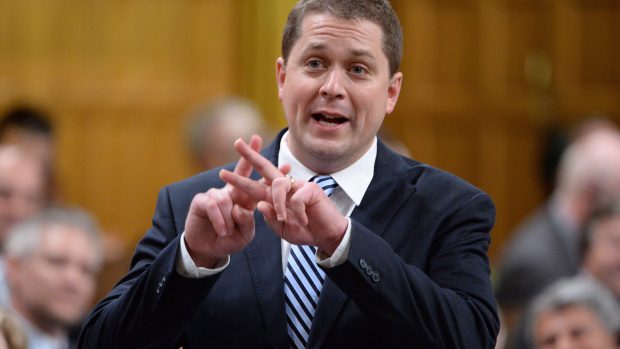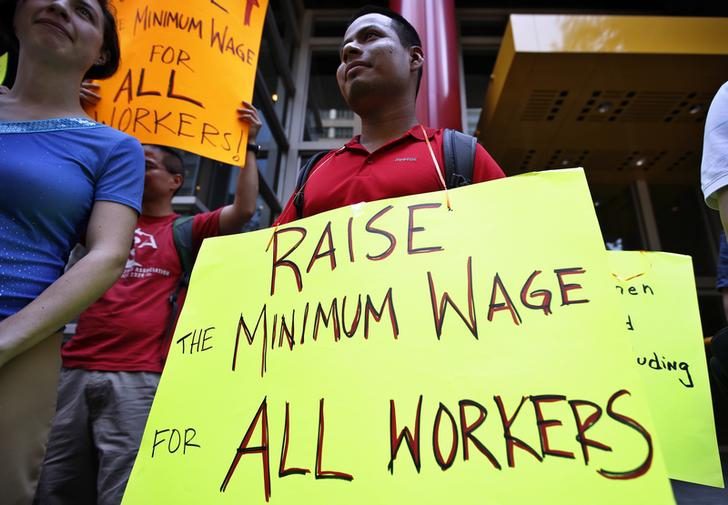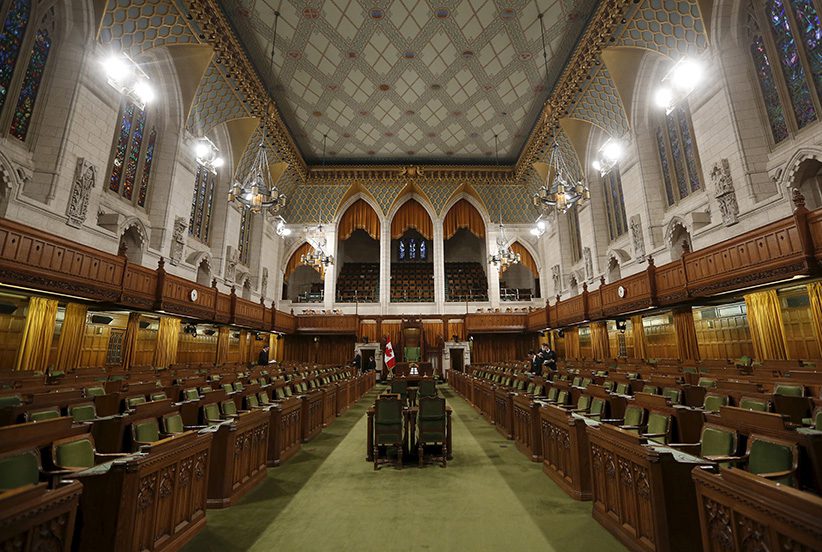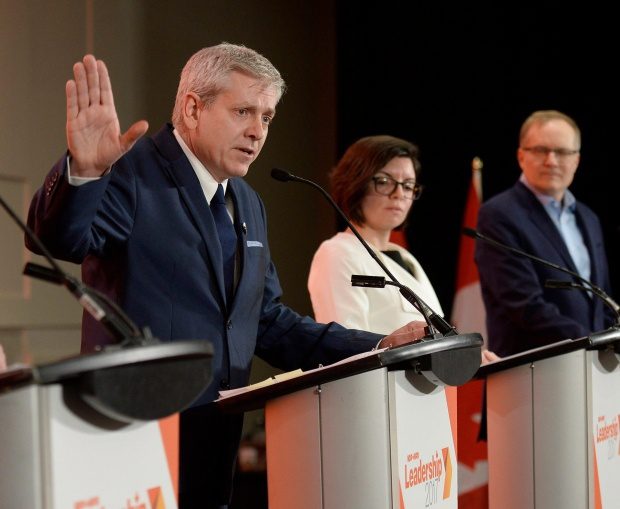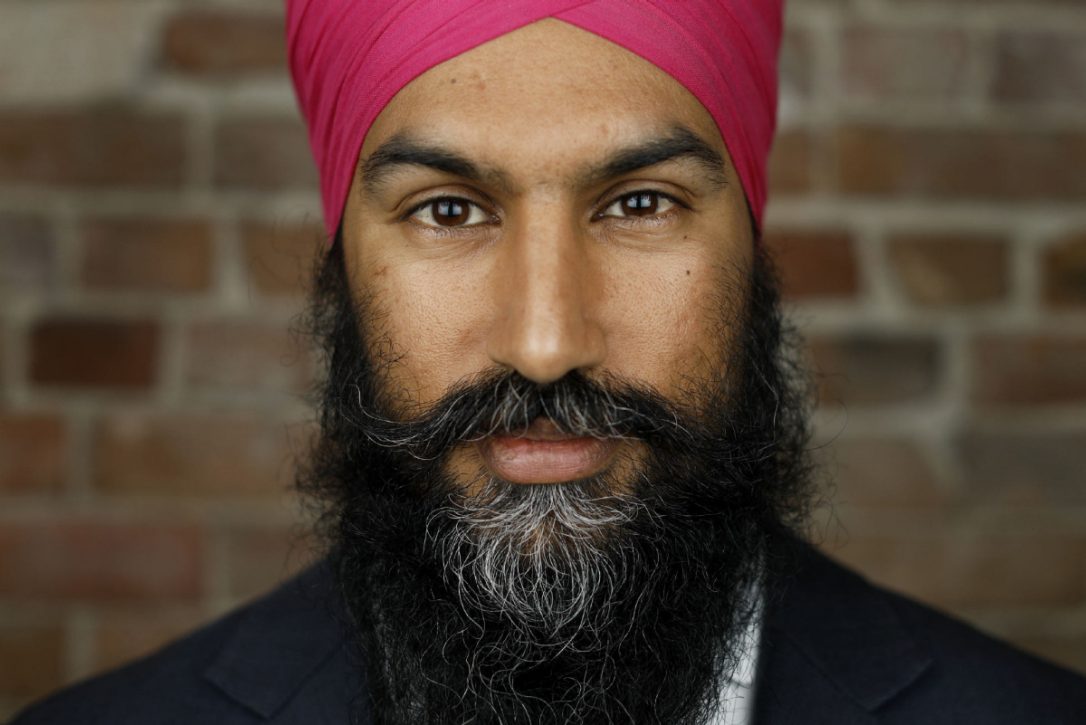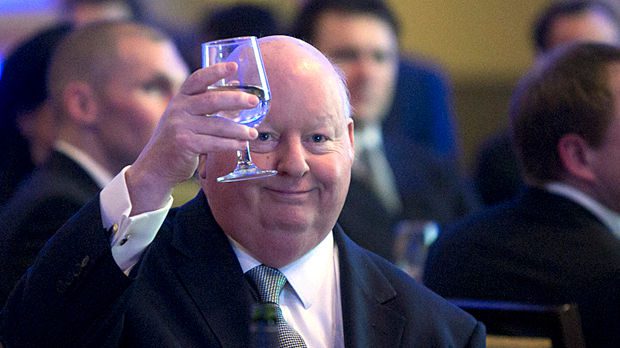Faced with a sub-par slate of candidates personifying a host of uninspiring traits, Canada's Conservatives elected Andrew Sheer, the one who personified "safety."
Safety can be an attractive quality when it protects us from danger. In the political world, this includes incompetence, chaos, radicalism, and offensiveness. Yet safety also describes an avoidance of risk, and in doing so numbs instincts for bravery, creativity, and honesty. As Scheer begins his third month as Tory leader, the practical consequences of this disposition is becoming apparent. What was useful in a tight, consensus-based intra-party election is showing its limitations in the arena beyond.
The "safe conservative" is a distinct species. They're certainly quite different from conservatives of the self-loathing, Michael Chong variety (who seem to be everywhere in the Canadian media these days), forever wailing about how the Conservative Party is too right-wing, too Christian, too bigoted, and too nasty. Unlike them, safe conservatives have no desire to point guns towards their own team, since that's not a particularly safe instinct — you don't want to risk alienating any faction of the base, after all. Rather than divide, they seek to focus on issues that "unite us all," as Scheer put it while diplomatically distancing himself from The Rebel (but only once that too, had become the indisputably safe thing to do).
And what unites us all? Certainly not the dreaded "social issues," which have become a watchword for all that frightens delicate suburban Canada away from Conservative politics. Nor anything that whiffs of Trumpism, which is to say, any messaging that could be described as aggressively "populist," or expressing skepticism on the immigration file. And nothing that edges too far in the direction of libertarianism either — that's the kind of philosophical rigidity that gets you branded a heartless ideologue. These things can be tolerated in private in the name of big-tentism, but must not be allowed anywhere near the spotlight.
What's designated for that space is a sort of "common sense" conservatism based around criticizing liberals when they go unambiguously off the rails, and affirming support for right-of-centre beliefs basically everyone shares — taxes should be low, people who break the law should be punished, terrorists deserve nothing but condemnation, and so on.
It's a popular ideology in the sense it's popularly-held, but as a platform for the prime ministership, it suffers from being excessively reactive, especially when emanating from a man like Scheer, who seems non-confrontational by nature (it was not for nothing he coveted the apolitical, mediating job of Speaker). The end result is a leader who's likable and agreeable, but faces steep handicap as a marketable product in an age of lightning-fast political journalism, which most respects the aggressive. A politician who reacts well but is disinclined to extend his own neck will not produce headlines, sharable content, or even much of a public profile (over 60% of Canadians have no opinion on Scheer one way or another, according to a recent Abacus poll). The result is someone who is present in the political conversation, but never leading it — a supporting character, not a star. Or, as Warren Kinsella more savagely put it, a leader who "exists in some sort of political limbo, neither here nor there."
It would be unfair to completely write Scheer off this early, of course. We do not know what issues will dominate the Canadian political conversation by 2019, and certainly the massive backlash to the Trudeau government's proposed tax grab on small business owners should give pause to anyone inclined to dismiss the power of "boring" stuff like tax policy. A charismatic, far-left leader for the NDP could split the vote in a way that lifts Conservative fortunes by default.
Yet when I talk to other conservatives, plenty feel the party is squandering a moment. Many on the right feel uniquely energized right now, encouraged by the example of Donald Trump, if not necessarily the man himself. Public intellectuals like Jordan Peterson, Gad Saad, and Ben Shapiro have proven supposedly incontestable left-wing arguments are much more fragile than they appear, and can be defeated decisively, so long as effort is exerted. The distain felt for Justin Trudeau, a man who so thoroughly personifies the haughty "present year" arrogance of the modern left mirrors the feelings his father sired in a previous generation of Canadian conservatives, many of whom utilized their outrage to write great books, found important activist groups, and launch successful, consequential political careers.
In such a context, Scheer's desire to be the safe man seems dramatically at odds with the fiery movement he's been summoned to politically embody — a fact which his party almost certainly has to know, given their outrage-a-day social media strategy aggressively panders to a style of angry conservative populism so obviously different from what the genteel Scheer actually offers. This, as many on the left have so gleefully observed, is the root of the Tories' "Rebel problem," whereby botched attempts to play both sides has made an incoherent mess of the career of Chris Alexander and others.
In a leader-centric system such as ours, Andrew Scheer's political instincts are the most important variable determining the near-future fate of the Canadian right. If we accept the premise that these instincts are broadly wired in the wrong way, then the greatest test of his leadership going forward may prove his ability to follow.
Written by J.J. McCullough



